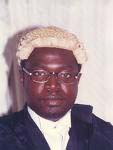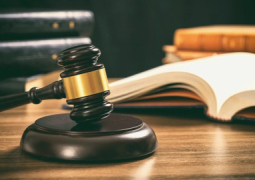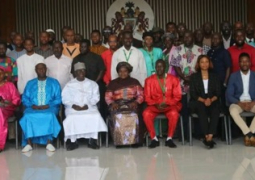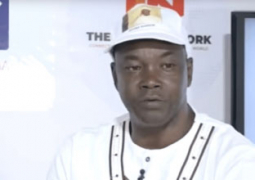
“He has an absolute right to say that he has an appeal pending and I have a motion pending which has not been decided.”
However, Justice Momodou S.M. Jallow argued that: “The issue of the DNA was an order of the court, wherein even a police officer who is investigating the matter should be able to extract a DNA sample from the accused person or the alleged offender under the Gambian laws. So take note of that, because I just wanted to make sure that samples subsist for the case of Babucarr Keita against him that’s all,” Justice Momodou S.M. Jallow said on Tuesday during the testimony of ASP Francis Jatta of the Police Crime Record Unit of The Gambia Police Force.
Lawyer Lamin Camara responded to Justice Jallow's claims, saying: “Sorry my lord, we can’t just sit down and let this go by that. My lord, we need to be careful with the statement that we utter in respect of this matter. Babucarr Keita is an accused person and he is a Gambian and he has right as enshrined in the constitution,” Camara posited
He added: “We have filed an appeal against all my lord’s orders. My lord, those appeals should be abided by. We file a motion in The Gambia Court of Appeal, and even if it’s not heard, we will abide by the consequences of the motion.”
“My lord, we have to move on from this. The man (referring to Francis Jatta) has been very clear and he said that he learned that a blood sample was extracted from Bubacarr Keita, but the police was not present. No one is forced to conduct a DNA test against his will. If the court orders it, he can appeal. My lord can only make a court order, but my lord can’t enforce court orders.”
Justice Momodou S.M. Jallow further interjected by saying, “We are not saying that you don’t have a right to appeal.”
“What we are saying is that Gambian constitution provides that any person who is being alleged, or even if it is just a mere allegation that you have committed sexual offences under section 13 of the constitution, any person and any police officer can arrest you and subject you to a DNA sample being extracted from you.”
Camara responded by saying “We cited section 19 in our motion and that there are exceptions. Therefore, in anyway, the constitution doesn’t say that. The constitution only provides exceptions on morality, public interest and others. I just raised my concerns and I want these things to be put on records.
“What we are saying is that we are up to be served. We should have been served with the DNA result and prepared for defence if there is any. That’s a constitutional mandate. The DNA result has been here for the past one week,” Camara submitted.
Justice Jallow said: “The DNA results are for the court. They are supposed to come to the court and they should be disclosed to you. If you want to be served those DNA results, then you are getting it very wrong. You can’t be served those results. Those results are not disclosed to you,” he emphasised.
Camara further responded: "No my lord, we are not wrong. DNA results in any document of evidence in the custody of the prosecution and of which they will rely on, must be served to the defence,” he told Justice Jallow
The presiding Judge then asks Camara: “Are you the one that requested for the DNA result to be conducted or is it the State Counsel that requested for the DNA result to be conducted?
“For the DNA result to be conducted was a court order. When those results are out, they are brought to the court and we are the ones that are supposed to disclose them to anybody. You will be served and you will be put on notice the moment those results are open so that nobody would say the results have been tampered.”
“We must know that in this jurisdiction we are not doing DNA a lot. So, there must be processes and procedures with complete transparency which we will all agree and abide by. So, even this tribunal or programmes you see in American television, the DNA results are always disclosed by the courts.”
“That’s a basic procedure. We must abide by that. It’s the court that orders the DNA results to be taken. The DNA results are back, thus how we disclose them and how you all get access to those results; we will ensure that they are opened in court.”





